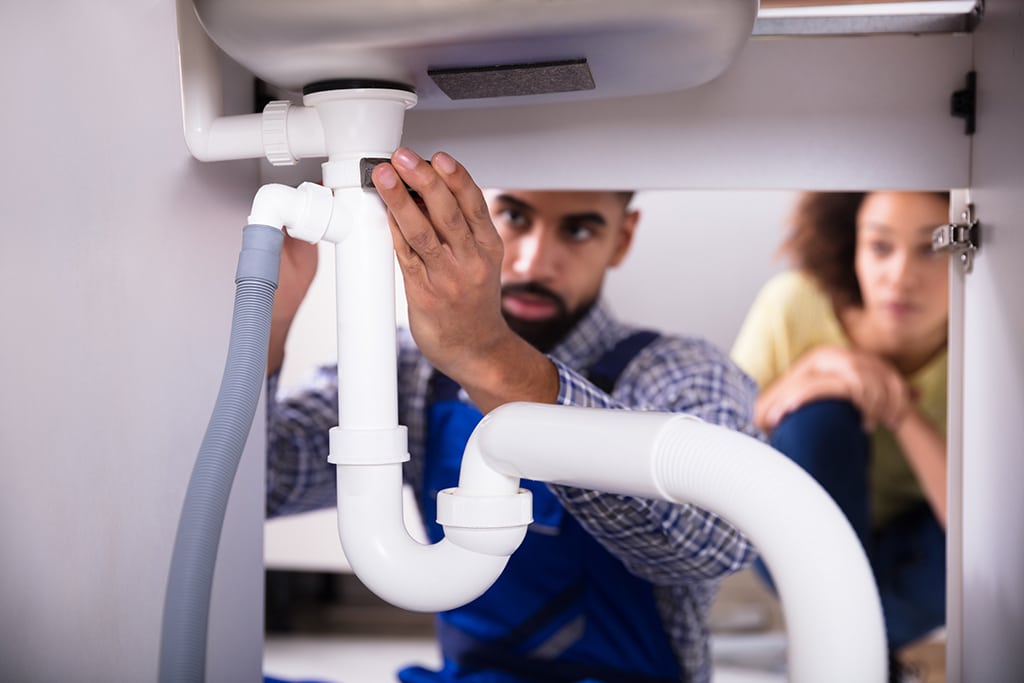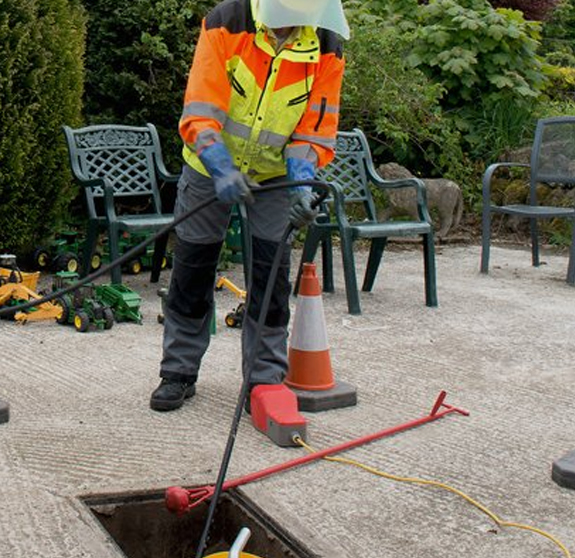Methods for Managing a Blocked Drain Before Hiring Professional Assistance
Methods for Managing a Blocked Drain Before Hiring Professional Assistance
Blog Article
Have you been looking for facts involving 8 Tips For Clearing A Blocked Drain?

Intro
Managing an obstructed drain can be a frustrating experience, interrupting daily tasks and potentially triggering damage to your building. Nevertheless, before reaching out to pipes specialists, there are actions you can take to address the concern on your own. In this guide, we'll discover DIY options and preventive measures to tackle an obstructed drainpipe properly.
Determining the Issue
The primary step in dealing with an obstructed drainpipe is acknowledging the indicators. Slow drainage, gurgling noises, foul odors rising from drains, or water backing up prevail indicators of an obstructed drainpipe. Recognizing these indications early can aid stop better problems.
Usual Sources Of Obstructed Drains
Comprehending the aspects that contribute to drain pipes obstructions is necessary for reliable resolution. Usual wrongdoers include hair, soap scum, oil, food debris, and foreign items like sanitary items or paper towels. Tree origins attacking below ground pipelines can likewise cause substantial blockages.
Do it yourself Solutions
For minor clogs, a number of do it yourself options can be reliable. Pouring boiling thin down the drainpipe can aid dissolve grease and debris. Baking soda and vinegar or a blend of salt and cooking soft drink can act as all-natural cleansers. Using a bettor or pipes snake to displace obstructions is another alternative.
Tools and Equipment
Having the right devices available can make DIY drainpipe cleaning much more efficient. A bettor is a functional device for removing blockages in sinks, toilets, and showers. A pipes serpent or auger can reach much deeper blockages, while drain cleansing chemicals can be utilized cautiously for stubborn blockages.
Preventive Measures
To prevent future clogs, embracing preventive measures is critical. Set up drain guards or strainers to capture hair and debris prior to they enter the pipelines. Regularly flush drains pipes with warm water to dissolve oil buildup, and prevent throwing away oil or solid waste down the tubes.
When to Call an Expert
While do it yourself solutions can resolve small obstructions, specific indications indicate the need for expert aid. Consistent clogs, foul odors despite cleansing initiatives, or several drains backing up at the same time are red flags that call for professional treatment.
Picking the Right Pipes Solution
When picking a pipes service, think about variables such as experience, licensing, and customer reviews. Choose a credible plumbing technician with a record of top quality craftsmanship and transparent pricing practices.
Cost Factors to consider
The price of professional drain cleaning services can vary relying on the intensity of the blockage and the plumbing's rates. Request quotes from multiple service providers and inquire about any type of added fees to make sure openness and avoid shocks.
Safety Measures
When attempting do it yourself drain cleaning, focus on security. Use safety handwear covers and eyewear to stay clear of contact with dangerous chemicals or germs. Never blend various drain cleansing products, as this can produce unsafe fumes.
Situation Researches
Real-life instances illustrate the performance of DIY remedies and the value of timely professional intervention in dealing with drainpipe clogs.
Verdict
By adhering to the pointers laid out in this guide, you can efficiently deal with obstructed drains pipes and protect against future pipes issues. Whether opting for do it yourself solutions or looking for professional help, prompt action is vital to preserving a healthy and balanced pipes system and protecting the stability of your home.
How to Clear a Clogged Drain Yourself (And When to Call In the Professionals)
What Can Clog a Drain
Dirt Skin flakes Hair Grease Soap scum Food Offset pipes Tree roots Small objects Mineral buildup DIY Tricks to Unclog a Drain
You can fix this! Once you have identified the source of the clog (or have a vague idea), you can try one or a combination of these fixes in order to clear your plumbing.
Wire Hanger or Snake
Untangle and clear out hair from a drainpipe with a homemade snake. Use a straightened-out wire hanger with a 90-degree angle hook to locate the clog and drag out any unwanted material.
Remember not to push the clog further down to where the wire hanger cannot reach! If you need to follow up with a plunger, give it a try. Your efforts might be more successful after it’s been wire-snaked.
If you want to get fancy and don’t have a wire hanger to spare, head to the store and pick up a hand-operated drain snake. You can get one for $10-$30. It may save you the hassle, and provide additional length to reach deep into the clogged pipe.
Plunger
A cup plunger has a suction cup attached to a wooden handle. The rubber creates a seal around the drain, and increases the pressure force of the plunger.
Plunge for 30-second increments to loosen the clog. This may need to be repeated over the course of 15-20 minutes. Once plunged, run the water to flush the remaining material out of the drain.
Remember– never use a plunger if you have used a chemical drain cleaner. These chemicals can splash up from the force of the plunger and cause serious injury or burns.
Boiling Water
Hot water can sometimes break up materials into a flushable amount. Dirt, grease, and soap buildup requires heat in order to unstick from surfaces.
Take your kitchen kettle and heat your water to a boil. Once it reaches a rolling boil, pour it directly down the drain into the blockage. Carefully follow with plunging, if necessary.
Don’t worry if this takes more than one try! It can often take multiple kettles and repeated plunging in order to clear a particularly stubborn clog.
Chemical Drain Cleaner
As a last resort, pick up a bottle of chemical drain cleaner. Drain-cleaning chemicals are potent, and not very good for the environment.
You may need to wear protective eyewear in gloves before handling your bottle of chemical drain cleaner. Follow the instructions printed on the bottle, and flush with water as soon as the instructions allow. Do not follow with plunging.
Baking Soda and Vinegar
As a safer alternative to chemical drain cleaner, baking soda and vinegar can create a chemical reaction that clears tough clogs.
Combine one cup of cleaning vinegar with one cup of boiling water, and set aside. Once you have done this, pour half a cup of baking soda down the drain. Give the baking thirty seconds to settle and cover a large portion of the problem drain.
Following the baking soda, pour down your vinegar and hot water solution. Once the vinegar and baking soda combine, the mixture will bubble and fix. Let this reaction fizzle in the drain for about an hour.
After an hour, follow with a kettle’s worth of hot water. The heat and liquid should flush out any remaining material.
When to Call a Plumber
If your DIY attempts haven’t cleared your clog drain, it’s time to call in a professional. It’s not worth losing access to your kitchen sink or high-traffic bathroom. A clog in a vital area can keep you from the things you’d rather be doing, and derail your routine.
Anytime a clog is causing water to spread is a time to call in a plumbing service. What starts out as a little bit of water can quickly grow into serious, expensive water damage.
Additionally, a serious clog can result in burst pipes or serious leaks. Make sure you know when to take it seriously!
https://myguysnow.com/how-to-clear-a-clogged-drain-yourself-and-when-to-call-in-the-professionals/

Do you enjoy more info about Tips for Dealing with Clogged Drains and Sewer Lines? Write feedback down below. We will be delighted to hear your feelings about this entry. We hope to see you back again in the future. Are you aware of somebody else who is serious about the subject? Be sure promote it. I am grateful for being here. Please check our blog back soon.
Book Report this page